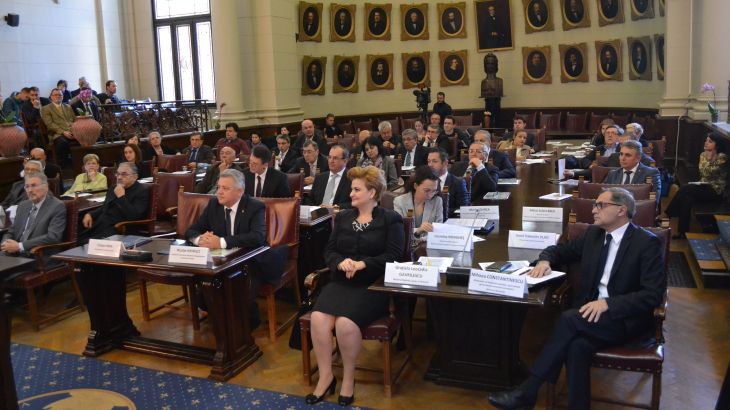Romanian Academy concluded in a study on energy efficiency, conducted at the request of ANRE, that there is a genuine risk of a doubling of energy and natural gas prices due to the removal of regulated tariffs.
“Romania’s transition to a single European energy market will result, in the following period, not in a decline in prices, as the EU hopes, but will conduct to a near twofold increase of energy prices. In these circumstances, a scenario of energy prices in Romania in 2017/18 shows that they likely will approach the European average: 0.227 euro for electricity and 0.076 euro for gas. As can be seen, in a short period of time (2015 – 2017/18) follows a shock of higher energy prices, probably the last price increase by policymakers. Price shock will be borne by the economy and the family budget. The impact on the poor segment of the population will be very hard to bear”, the study said.
The negative effects that they may have for some consumers, particularly for households, can be diminished by safeguards targeted only towards vulnerable customers, and to spread technologies that boost economic growth based on competitiveness and high quality and high qualification jobs.
Measures on reducing energy poverty and improving quality of life and safety of supply also include increasing energy efficiency to reduce bills, information campaigns among households for the construction of energy knowledge, particularly in the relationship with suppliers.
The study released on Monday shows that reducing energy poverty and protecting vulnerable customers must relate to the intensity of energy production in Romania and the percentage of people at risk of poverty or social exclusion. The analysis is clear about the living standards and consumer protection, including this component under the generous umbrella of national security and human rights.
According to the study, “energy poverty in the context of current Romania is a combination of four factors: low income, increased energy prices, access to energy resources and energy characteristics of dwelling and of supply system”.
“We expect the acceleration of poverty within Romanian population, under the impact of the rapid growth of energy prices, the widening gap between living standards in Romania and EU. (…) Increasing energy prices will increase the number of vulnerable consumers and the extent of energy poverty of Romania’s population,” shows the study.
Romanian Academy recommends launching a research on the social impact of energy consumption, which would be coordinated by the Romanian Government. Its purpose is to establish the social coordinates of the energy policy, including the definition of energy poverty for the next decade.
It is also necessary the “coordination and integration by the Government, with the support of ANRE, of social policies in different sectors: energy social policy, poverty reduction and social inclusion, the social policy of consumer protection, wage policy, job creation & employment, housing policy”. Increasing home energy efficiency and rethinking the current system of subsidies for heating are other two key elements proposed by the Romanian Academy.
